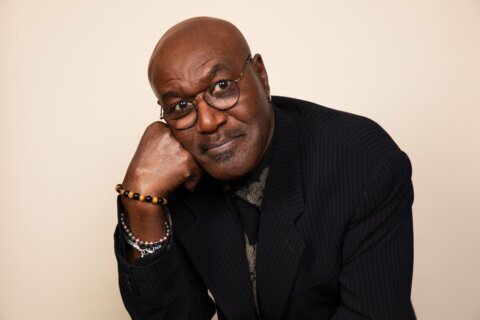In 2016, Chilean filmmaker Pablo Larraín delivered “Jackie,” a nightmarish portrait of widowed First Lady Jacqueline Kennedy in the aftermath of the assassination of JFK.
Now, we get a similar macabre treatment of Princess Diana in “Spencer,” a film that can’t really be called a biopic, but rather a slice-of-life “fable based on a true tragedy,” taking artistic license to imagine Diana’s mental breakdown in the days before her divorce.
Set during Christmas 1991, Britain’s royal family spends the holidays at the Sandringham estate in Norfolk, England. It’s here amid the suffocating trappings of tradition that Diana decides to leave Prince Charles due to his tabloid-publicized affair with Camilla Parker Bowles, except Diana receives little sympathy from the royals, who blame her instead.
If you said in 2009 that the stars of “Twilight” would go on to become Bruce Wayne and Princess Diana, Hollywood would have said you were crazy. And yet, Robert Pattinson is about to become a blockbuster superhero next year in “The Batman,” while Stewart is officially the front-runner for the Academy Award for Best Actress — and may just win.
It’s clearly Stewart’s best performance to date after gradually rebuilding credibility with critics after early career jokes at her expense as a young adult vampire lover. It’s also the type of transformative performance that Oscar voters reward, featuring spot-on Diana hair, makeup and wardrobe, which she subversively swaps out on the royal clothing rack.
Some hail Stewart for disappearing into the role, but many viewers will remain fully aware that they’re watching Stewart playacting as Diana, perhaps due to the breathless delivery of on-the-nose dialogue by writer Steven Knight (“Locke”) whispered in a British accent.
Her best scenes come when she lets loose with her kids, William and Harry (Jack Nielen and Freddie Spry), confides in her maid (Sally Hawkins) or gets emotional with Charles (Jack Farthing) and Queen Elizabeth II (Stella Gonet). Mostly, though, it’s impossible to understand her constant whispers to the major (Timothy Spall) and the cook (Sean Harris).
Of course, there’s a reason for this. A sign in the kitchen reads, “Keep the noise down, they can hear you,” suggesting that the royal family is always watching. This theme is expressed right from the opening sequence of British military trucks delivering food in munitions crates, their tires driving over a dead bird on the road in a low-angle shot.
This foreshadows Diana’s death in that tragic 1997 wreck. She even says, “I’m taking my place among the pheasants” as the men go on a pheasant hunting trip at the end of the movie. It’s also poignant that the film opens and closes with Diana driving in a car, while she’s often seen sitting behind candles like Elton John’s “Candle in the Wind” eulogy.
Such foreshadowing is catnip to we critics, who can see why Larraín was nominated for the Golden Lion at the Venice Film Festival. He deserves an Oscar nod for constructing aesthetically pleasing mirror compositions (“Mirrors are essential to cinema,” Larraín told me in 2016) and symbolically placing a portrait of Henry VIII in the background.
Remember, it was Henry VIII who beheaded Ann Boleyn so he could have an affair. Such themes echo “Jackie,” which I considered something of a masterpiece at the time, but the act is wearing thin as a subgenre. How many movies do we need about famous wives of womanizing husbands cracking up under the pressure? Especially told with a male gaze?
Either way, the approach lends a nightmarish quality to disturbing dream sequences as Diana eats her pearl necklace in her soup, encounters Boleyn’s ghost, and walks the foggy cold grass to her childhood home to see visions of her childhood self dancing as a ballerina, all set to an eerily discordant score by Radiohead’s Johnny Greenwood.
It’s during these moments that Larraín echoes the imagery of “Rebecca” (1940), but Larraín forgets that “Rebecca” won Best Picture by combining Alfred Hitchcock’s gothic direction with Daphne du Maurier’s compelling plot, the latter of which is oddly missing from “Spencer.” The film is so abstract that it will undoubtedly alienate half of its audience.
If you’re a Diana fan, this probably won’t be your cup of tea because it takes so many liberties to paint her as insane. If you don’t know the Diana story, this won’t be your cup of tea either, because the script assumes we know everything about the scandal. So, whose cup of tea is it? Cinephiles who love filmmakers painting nightmarish character studies.
There was a time when acclaimed biopics were mainstream blockbusters: “Lawrence of Arabia” was the No. 2 highest grossing film of 1962, “Patton” was the No. 4 highest grossing film of 1970, and “Schindler’s List” was the No. 4 highest grossing film of 1993.
These days, “Spencer” has a 85% critics score and 49% audience score on Rotten Tomatoes as the highbrow vs. lowbrow divide grows with each passing year. The result is another film that will contend for Oscars but push mainstream moviegoers further away.
Surely, if I were writing for a film magazine, I’d be tempted to call this a masterpiece of nightmarish proportions, but at a mainstream radio station in Washington D.C., I can’t in good conscience praise the film when I know that most of our listeners will hate it.
And that, ladies and gentlemen, is the real tragedy of “Spencer.”









